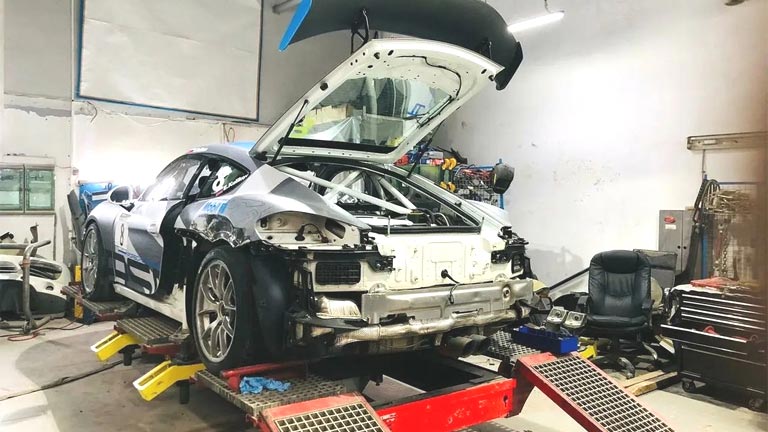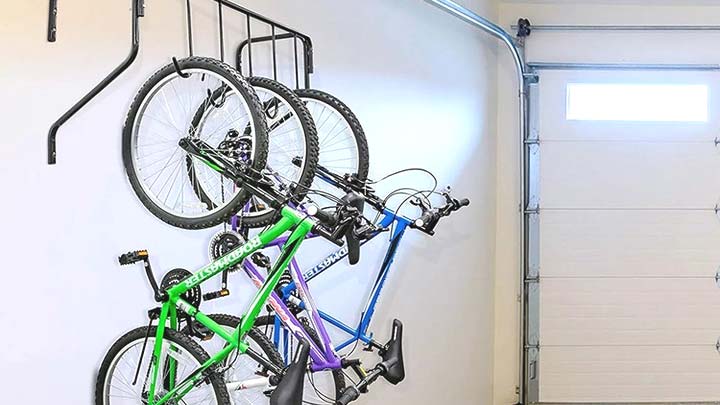
Car accidents are a frequent occurrence on roads, ranging from minor collisions to major crashes. After a car accident, ensuring the safety of yourself and others involved is crucial. Once everyone’s safety is secured, the next step is to evaluate the damage to your car and proceed with the necessary repairs. In this informative article, we will provide valuable tips for repairing your car after a road accident.
Assessing the Damage
The initial step in the car repair process following a road accident is assessing the damage. This step helps determine the required repairs and associated costs. Minor damage might be reparable by yourself, but for extensive damage, it is advisable to seek assistance from a professional mechanic.
Here are some tips for evaluating the damage to your car:
Check for visible damage: Examine your car for any visible signs of damage such as dents, scratches, or shattered windows. Take note of the extent and location of each damage.
Check for leaks: Inspect the underside of your car for any leaks, such as oil or coolant, as these could indicate more severe damage.
Verify the functionality of lights: Test all the lights on your vehicle, including headlights, taillights, and turn signals, ensuring they are functioning correctly.
Verify the alignment: Drive your car slowly in a straight line to confirm if the alignment is affected. If your car veers to one side, it may indicate alignment damage.
Inspect the brakes: Test your brakes to ensure smooth functionality without any unusual sounds like squeaking or grinding.
Seeking Assistance from a Professional Mechanic
If the damage to your car is extensive or you are not comfortable with DIY repairs, it is best to take it to a professional mechanic. Here are some tips for finding a reliable mechanic:
Seek recommendations: Ask friends and family for recommendations of reputable mechanics in your area.
Check online reviews: Read online reviews to gain insights into other customers’ experiences with mechanics in your locality.
Verify certifications: Look for mechanics certified by the National Institute for Automotive Service Excellence (ASE).
Obtain multiple quotes: Request quotes from multiple mechanics to compare prices and services.
Seek clarification: Ask the mechanic detailed questions regarding the repairs, ensuring a clear understanding of the work being done and its necessity.
DIY Repairs
For minor car damage, you can opt for DIY repairs. Here are some tips:
Fix small dents: Utilize a plunger or suction cup to remove small dents. Position the plunger or suction cup over the dent and exert pressure until the dent pops out.
Replace broken mirrors: Purchase replacement mirrors from an auto parts store and install them yourself.
Replace headlights or taillights: Buy replacement bulbs from an auto parts store and install them on your own.
Patch small scratches: Use touch-up paint from an auto parts store to remedy small scratches on your car’s paint.
Considering Selling to a Junkyard
Selling a damaged car to a junkyard might prove beneficial in certain circumstances, although it may not be the best option for everyone. Consider the following factors when deciding whether to sell your damaged car to a junkyard:
The extent of the damage: If your car is severely damaged and not drivable, selling it to a junkyard can be a viable option. Junkyards typically provide a fair price for the car’s scrap metal and salvageable parts, which can help compensate for repair costs or the purchase of a new vehicle.
Repair costs: If the repair expenses exceed your car’s value, selling it to a junkyard might be the most cost-effective solution. This is particularly true for older cars or those with high mileage, as their resale value may be low even if they are in good condition.
Emotional attachment: If you have a strong emotional attachment to your car, selling it to a junkyard may not be the most suitable choice. In such cases, you could explore alternatives like donating the car to a charity or selling it to a private buyer willing to invest in necessary repairs.
Environmental impact: Selling your car to a junkyard can have environmental implications as it involves dismantling the car and recycling or disposing of its parts. If environmental concerns are a priority, consider other options such as donating the car to a charity focused on refurbishing and reselling vehicles or selling it to a private buyer committed to reducing their carbon footprint.
Ultimately, the decision to sell your damaged car to a junkyard depends on your specific situation and priorities. If you choose to sell to a junkyard, conduct thorough research to find a reputable buyer offering a fair price. Additionally, consider exploring other selling options, such as private buyers or charitable donations, to ensure you receive the best value for your car while aligning with your values.
How to Navigate the Process and Get the Compensation You Deserve
Filing an insurance claim for a car damaged in a road accident can be a daunting and overwhelming experience. Here are some expert tips to help you smoothly navigate the process and ensure that you receive the full compensation you are entitled to:
Step 1: Gather Crucial Information
Immediately following the accident, gather as much information as possible. This includes the names and contacts of any witnesses, the other driver(s)’ insurance details, and photographs or videos of the accident scene and the damage to your vehicle. This information will play a crucial role when filing your insurance claim.
Step 2: Promptly Contact Your Insurance Company
As soon as possible after the accident, get in touch with your insurance company to report the damages and initiate the claims process. They will guide you on what steps to take and the necessary information they require from you.
Step 3: Follow Your Insurance Company’s Claims Process
Each insurance company has its own unique claims process, so it is essential to carefully follow the instructions provided by your insurer. Typically, you will need to provide detailed information about the accident, such as the date, time, and location. Additionally, you may be asked to obtain repair estimates.
Step 4: Provide Accurate and Complete Information
When filling out your claim form, make sure to provide accurate and comprehensive information. Failing to do so can lead to denial or delays in processing your claim. Stay truthful and provide all relevant details to ensure a smooth claims process.
Step 5: Maintain Copies of All Documentation
It is important to keep copies of all documents related to your claim. This includes the claim form, police reports, repair estimates, and any communication with your insurance company. These documents will serve as valuable evidence if you need to appeal a denied claim or address any disputes with your insurer.
Step 6: Exercise Patience
Bear in mind that the claims process can take time, especially in cases where fault or repair costs are disputed. Remain patient and maintain regular communication with your insurance company. This will help ensure your claim is processed as efficiently as possible.
Step 7: Consider Enlisting the Aid of an Insurance Claims Attorney
If you encounter difficulties in getting your claim approved or believe you are not receiving adequate compensation, it may be worthwhile to hire an attorney who specializes in insurance claims. These professionals are well-versed in navigating the claims process and can effectively negotiate with your insurance company on your behalf.
By following these expert tips, you can confidently navigate the insurance claims process, ensuring that you receive the compensation you rightfully deserve.




